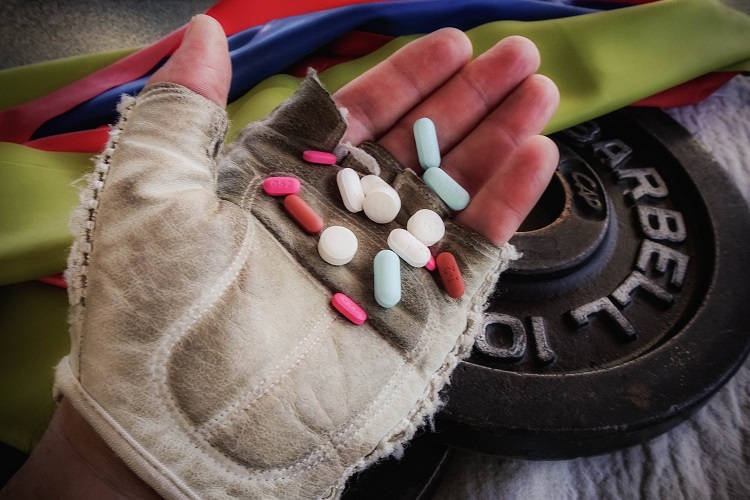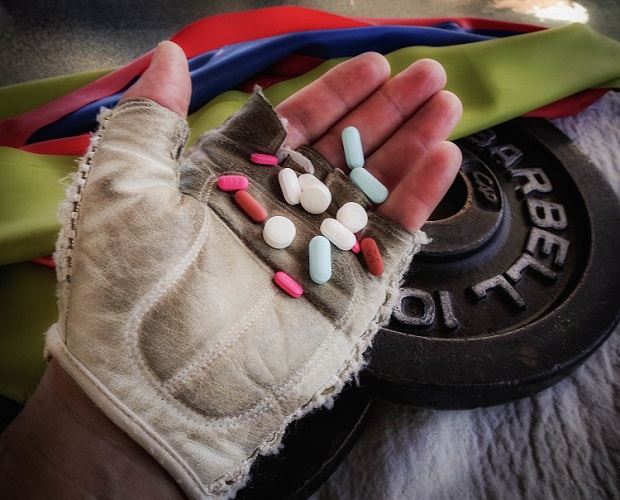

By Michael Krueger
Health and fitness are common buzzwords often uttered in the same breath. In fact, they are not really the same thing…similar to the way drug-augmented health and self-generated fitness are different things entirely.
I know I talk about these things a lot, but they are so important and play such a huge roll in our culture that I doubt I’m going to stop harping on them anytime soon.
Definitions
Health is generally defined as the absence of illness, injury, or disease. In the medical world, “healthy” is an ever-changing condition. Our health care system looks for problems, called “preventative medicine”; others refer to it as “defensive medicine.” Either way, the line that separates one from being healthy or not is always moving, driven by new understanding of diseases, more sensitive testing, new drugs, and improved surgical and medical procedures.
Fitness, on the other hand, is a self-determined condition. How fit do you want or need to be? How do you choose to achieve this state? Fitness isn’t something the medical world cares about; it doesn’t mean anything to it since it can’t directly influence it. It can’t prescribe drugs to achieve it nor can it perform surgery to make it happen.
Health
Illnesses can befall you through no fault of your own. Your genetics; environment; and, seemingly, just bad luck, can make all the difference. There are many strange diseases that can sneak up on you. Anyone who has ever watched House on television can attest to that. I’m not talking about that definition of health; I’m looking at the more mundane conditions that afflict humankind.
The basic, testable definition of health is ever-changing. It even varies from country to country as you travel around the world. For instance, the threshold for treatment of any number of conditions is quite different in the U.S. as compared to Great Britain.
There was a time not that long ago when high blood pressure was defined as a diastolic pressure of 115 or higher. Now, patients are treated at 90 and often anything over 80. A high-fasting blood sugar level was 123; now it is anything over 100. Cholesterol was a problem if it was approaching 300; now, LDL should be below 100, something few people can achieve without the help of Statin drugs.
Health is now defined through testing. These tests are then interpreted by whoever ordered the tests. These interpretations are influenced by other tests and trials and by the experience of those doing the interpretation. This opens the door to a confirmation of bias. Drug companies want them to prescribe drug therapies and surgeons want to do surgery.
Fitness
Fitness doesn’t have just one definition. It all depends on you and what you feel is needed to live your life the way you want. I could compare your performance to the norms for someone your age, but that doesn’t mean much. You are as fit as you are right now, and me telling you that you’re are “good” or “fair” or “excellent” doesn’t change anything.
Being fit allows you to enjoy life. You can go out and do the things you want to do. When you are able to go walking, running, or hiking; be active in sports; and play with your children (and, later, with your grandchildren), that is what being fit really means.
As a firefighter, it means being able to work a fire and not have to sit in rehab and let others do your job. You can work side-by-side with someone half your age and not miss a beat. Fitness means living life to the max.
What has been shown is that if you maintain a fit and active lifestyle through the years, you “grow old” slower than those who don’t. Your capacity for work and play stays at a much higher level than for those who don’t exercise, and the mortality rate for those who are fit is lower as well.
The Medical Conundrum
Chasing health is a frustrating experience because of the ever-changing goal line. Last year, you were healthy, but now, with the same or even improved numbers, this year you are ill. I’m not saying that they’re wrong; it’s just that, often times, it seems they are creating problems where none exist.
New tests can create new anxieties. The PSA test for prostate cancer is a good example.
As you might have guessed, I had a physical and a disagreement with my doctor over some of the results.
My family has no history of heart problems despite a tendency toward high cholesterol. My cholesterol is higher than it “should” be and has always been. My blood sugar was fine until the most recent change in what is considered “good,” and my blood pressure was excellent until we started discussing my test results.
I don’t smoke or drink alcohol to excess and I’m not obese (although my body mass index is borderline overweight even though I am at 12-percent body fat, which doctors don’t test for and which the “numbers” don’t take into consideration). I exercise regularly; other than when I have to deal with the health care industry, I have little bad stress in my life. In other words, I am not a probable candidate for heart disease, but the numbers say I should be treated anyway.
People with multiple risk factors or really high numbers will benefit greatly from aggressive treatment. Treating people like me who are statistically on the low-risk end is expensive and of dubious benefit, definitely a case of diminishing returns, and not a good return on investment. I find this aspect of preventative medicine frustrating.
The Problem
At the bottom of my test results my doctor noted that I “appeared” to be fit and did not “appear” to be carrying excess adipose tissue, but this was “only an anecdotal observation not supported by testing.”
I then suggested that we do some testing. A hydrostatic test to determine my body fat and a treadmill stress test to determine my VO2 max and heart function would be a good place to start to determine if I am fit and/or healthy. He said that the insurance companies won’t pay for these tests unless I was obviously ill. It was then that I asked if I’m “diseased” enough for treatment, shouldn’t I be a candidate for further testing as well?
It was here where he went off the record. He said that he was required to recommend drug treatment whenever a test result breached a certain level. He said it was obvious that I was taking excellent care of myself and he was quite satisfied that I thoughtfully refused these recommended treatments. He wished more people in my situation did. Unfortunately, most people don’t, and that is part of the problem. Patients are not taking responsibility for their own health and welfare.
There are many downsides to drug intervention for any condition that can easily and effectively be addressed with an improved diet, weight loss, and exercise. He said that many doctors no longer even bring these things up because no one listens anyway. My doctor does “prescribe” exercise by literally writing out on an old fashioned prescription pad (which he keeps on hand for just that use) what he wants a patient to do in regards to exercise or weight loss and hands it to them telling them to “get it filled.” Most people look at him and laugh.
Pharmaceutical Fitness
Fitness is a performance based assessment; it is a condition attained though hard work and doesn’t come from a pharmaceutical company despite what some “enhanced athletes” might believe. Look in any glossy muscle magazine and you will see the ads for miracle products that will reduce the size of your bank account long before they increase the size of your biceps. The drug companies are desperately trying to come up with “fitness in a bottle” that may be legally marketed because they believe that it it’s the Holy Grail of pharmacy.
There are those who sully the quest for fitness by using steroids, amphetamines, and any number of other performance enhancing drugs and questionable “supplements.” They are the posers who corrupt the process, tempt the ignorant, and exploit the uninformed. You can always find advocates who will tell you how much they accomplished, and that you can, too. Just meet them out back by the dumpster and they will sell you “muscles in a syringe.” Just remember to bring lots of cash and come alone.
The physical and mental side effects of any drugs acquired illicitly are always an unknown. How they will interact with your metabolism or other drugs you might take are a crap shoot at best. The emotional effect of knowing that you are cheating is something you will have to deal with on your own.
Even the drugs prescribed by your doctor have documented side effects and your body just might come up with a new one. If you take drugs to simply treat a condition that could be cured by an improved lifestyle, you are cheating yourself out of the chance to really be fit and healthy, in mind, body, and spirit.
Personal Responsibility
I want to reiterate that I am not in any way advocating ignoring your doctor or not taking prescribed medicines. In my opinion, there are “good” medicines and “bad” medicines. The good ones “cure what ails you,” and the bad ones you take every day until you die. Have a talk with your doctor about whether there are steps you can take to mitigate the need for some of the drugs you are currently prescribed; there usually are. Some illness can be just as effectively addressed by assuming the personal responsibility to make changes in your lifestyle. These changes often cure the illnesses that the drugs are just treating or controlling. Health, like fitness, doesn’t come in a bottle, either.
Fitness is a total life experience, not defined by the numbers on a computer printout or the tables of a chart. It is a personal journey, not an end goal. Fitness will take you a long way toward being truly healthy in every aspect of your life.
It’s up to you, it’s your choice to live either a life of chemical dependence and reduced capacity or a life of strength, independence, and adventure…
…you make the call.
Michael Krueger is an NSCA-certified personal trainer. He got his start in fitness training while serving in the United States Coast Guard. He works with firefighters and others in and around Madison, Wisconsin. He is available to fire departments, civic organizations, and athletic teams for training, consulting, and speaking engagements. He has published numerous articles on fitness, health, and the mind-body connection and was a featured speaker at the IAFC’s FRI 2009 Health Day in Dallas, Texas. E-mail him at MKPTLLC@gmail.


